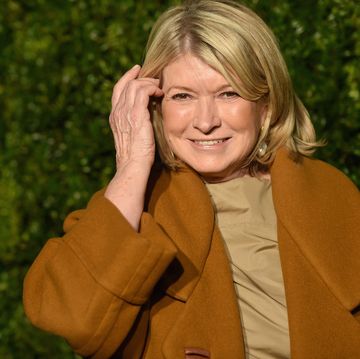Since news about his messy divorce from Angelina Jolie broke last September, Brad Pitt has been the subject of much public scrutiny. But he's managed to stay out of the spotlight for the most part — until this week, when GQ published a deeply personal interview in which he acknowledged and opened up about his drinking problem and starting therapy.
In the intimate interview, the 53-year-old actor revealed that he's quit drinking since separating from Jolie.
"I was boozing too much. It's just become a problem," he told GQ writer Michael Paterniti. "I enjoy wine very, very much, but I just ran it to the ground. I had to step away for a minute."
In some ways, drinking had become a crutch for him, Pitt added.
"I can't remember a day since I got out of college when I wasn't boozing or had a spliff," he said. "And you realize that a lot of it is ... pacifiers. And I'm running from feelings. I'm really, really happy to be done with all of that."
It's good to hear that the actor has been able to acknowledge his problems with substance abuse and tackle them head-on. But the one part of Pitt's GQ interview that really stuck out to us? When he admitted that finding the right therapist to help him through the process took time.
"You know, I just started therapy," Pitt said. "I love it, I love it. I went through two therapists to get to the right one."
Pitt's statement about seeing multiple therapists before settling on one is downright refreshing. It's rare that the struggle to find the right therapist is publicly acknowledged, but it's an all-too-common dilemma — after all, if you choose to seek out therapy for any reason, there's no guarantee that you'll really connect with the first person you see.
How to Find Your "Soul Therapist"
There's no shame in "shopping around" until you do find the right therapist. If you're looking for one of your own right now, try following the three tips that Los Angeles-based clinical psychologist Liana Georgoulis, PsyD, gave to HuffPost:
- Know what you want to get out of therapy. Be upfront with your potential therapist about your goals, and don't be afraid to ask questions about his or her experience with your symptoms or condition.
- Ask your therapist about treatment methods. You want to verify that your potential therapist knows their stuff — and knows what type of treatment will be best for you.
- Test your personal connection. Sometimes you just "click" with a person ... and sometimes you don't. If that's the case, don't be afraid to try something — or someone — else.
[h/t HuffPost
Heather Finn is the content strategy editor at Good Housekeeping, where she heads up the brand's social media strategy and covers entertainment news on everything from ABC's 'The Good Doctor' to Netflix's latest true crime documentaries.













